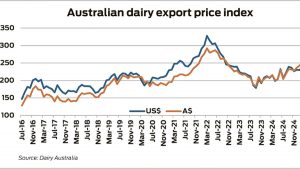
While the milk supply agreement does not need to be in writing, it is clearly intended there will be a move towards any agreements being in writing.
The code places an onus on a processor to make a written record of an unwritten on a processor to make a written record of an unwritten milk supply agreement and give a copy to the farmer. If the supply period of the agreement is 90 days or longer, there is an additional obligation on the processor to make all reasonable efforts to obtain from the farmer a written acknowledgement that the record is a complete and accurate record of the oral agreement.
While these requirements are specific to the dairy industry, it again brings in to focus an important legal issue – contracts, or more specifically oral contracts versus written contracts.
From a legal perspective, an oral contract – the ‘good old handshake’ – is no less enforceable than a written contract. Why then is there a push to record the terms of a contract in writing, as is the case with the dairy code, rather than leaving it as an oral contract? The reason is a fairly straightforward one – there can be far less argument at a later time as to precisely what was agreed to. There can be a multitude of scenarios that play out that make an oral contract problematic – one of the parties wants to renege on what was agreed and disputes what was agreed; the parties each have a different view of what was agreed at the time, particularly where the agreement was from a long time ago one of the people involved in the original agreement is no longer involved at that business.
The issue with the parties having a different view as to what was agreed can be a common one, particularly where there might be a range of products or crops involved, all with a range of prices, as well as a quality of standards that need to be applied. There may issues around timing and quantities.
All of these scenarios can lead to a breakdown of the relationship and potentially significant cost implications, particularly if it ends up in court.
The difficulty with oral contracts in a court scenario is that often the court will have to decided between which party is likely to be correct, which results in a great deal of uncertainty. This can be contrasted with a written contract – while it isn’t a cure all, the fact that the issues have been discussed and agreed to in writing makes it less likely to result in issues arising and, where it does end up in court, makes it more straightforward.
We regularly come across parties that didn’t want to pay for the cost of having the agreement put in writing.
The content of this article is intended to provide a general guide to the subject matter. Specialist advice should be sought about your specific circumstances.
























